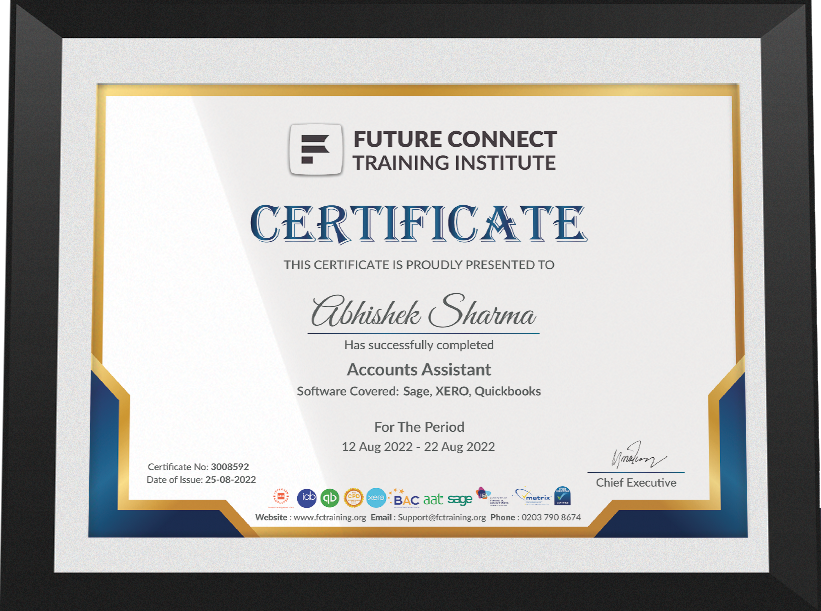Course Includes:
- Mode: Classroom & Online
- Duration: 30-34 Weeks
-
Sessions: 60
- Language: English
- Certificate: Yes


AAT level 4 is the foremost level of the AAT qualification. Once you have achieved level 4, you will have added AAT Accounting Technician qualification.
Like most qualifications, level 4 is considered a lot tougher than the former levels. Completing the level 4 qualification will provide you with the understanding and confidence you need to progress onto further education like CIMA, ACCA and ICAEW.
Unlike levels 2 & 3, the assessments will comprise some written elements. You will require a right level of understanding about the different topics covered in the former level so that you can explain certain concepts of the syllabus in your assessments.
The Professional Diploma in Accounting -Level 4 further develops advanced financial and administration accounting skills and introduces specialised topics such as auditing and taxation. It is appropriate for those who have finished the Level 3 AAT qualification.
The AAT Professional Diploma in Accounting - Level 4 shapes on what you have learned in Level 2 and 3, and will set you on a path to become a Chartered Accountant, and can provide you MAAT status, permitting you to use the MAAT designatory letters after your name.
The AAT Professional Diploma in Accounting – Level 4 is the best course for you if you want to gain the skills necessary to become a financial team leader or set up your accounting practice. In this course, you will study financial statements for limited companies and complex management bookkeeping tasks. You will also learn management accounting: budgeting, accounting systems and controls and decision and control. You can specialise in business and personal tax, external auditing, credit management and cash and capital management.
By the end of this AAT Level 4 professional course in accounting, you will be able to:
You can expect a considerable number of benefits from studying AAT courses. These include:
This is a Level 4 course. The concepts, theories and topics that you cover will be more composite. The AAT Professional Diploma in Accountancy is the ultimate course in your accountancy training. As a result, you will discover advanced skills which will position you to apply for supervisory roles in the industry. There are also two optional units which let you specialise in a particular area. The two topics comprise drafting financial statements and assessing financial performance.
The final two units necessary to complete the course will be selected from a set of five options, including:
Completing our AAT Professional Diploma in Accounting - Level 4 course will provide you with the necessary knowledge to evaluate financial reports, reconcile account balances, and maintain general ledgers and more. This will support you to progress into more senior roles and start more senior responsibilities, helping you work to a promotion or a new job role. Additional pathways also comprise working to become a Chartered Accountant, starting your own accountancy business, or taking on a new senior job. New career changes could include:
